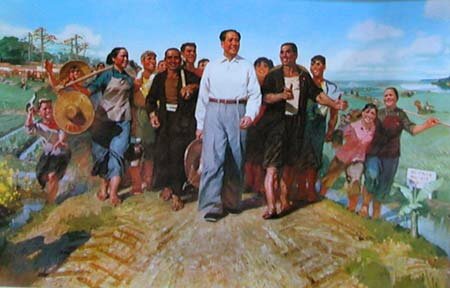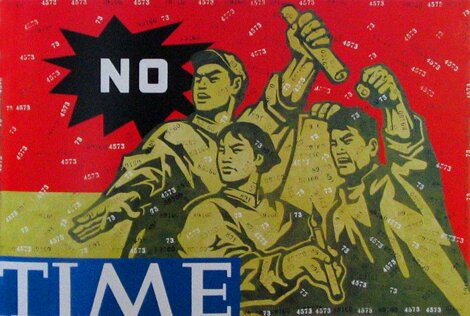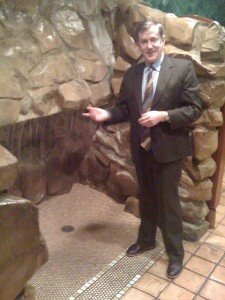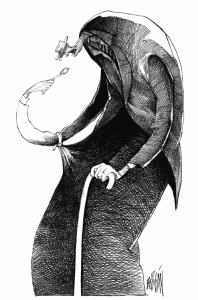
Shortly after my70’s military stint I did a home-stay with a Mennonite family, headed by a businessman who felt called out from society to a quite farm in Pennsylvania. Despite no TV or newspaper he was remarkably on the cutting edge of social responsibility and had more cultural savvy than daily news subscribers. And via his knowledge of the great books he more than hold is own in debates on topical as well as philosophical issues: his home went solar in the 70’s and he and his beautiful family lovingly maintained what industrialized societies slowly lose or alter: core values and sacrosanct time, conversation, and meaningful rituals: things that that Chinese families are losing. The Mennonites held hands and sang songs of thanks before every meal and during my stay, when community members called, they didn’t pause to ask why, how or when they could help a neighbor who was in trouble: they just helped without hesitation or reservation. Though I could never live as austerely or as committed to a religion, I admired them as people, not imprisoned by their faith, but true celebrants of its simple focused lifestyle. They steered away from politics and involvement in affairs outside of their circle of faithful unless it was to involve themselves in pre-mediated acts of charity and kindness.
All of that was preface to my most moving and clarifying moment with them: They had had been involved a few years earlier in hurricane relief in the southern U.S.: They built, with donated supplies, homes for those who had lost everything in a vicious storm. The Mennonite crews who traveled to Mississippi built sturdy structures with 2-3 rooms with amazing skill and speed and shortly afterward would bring survivors to the site before completion so the new owners could decide where their kitchen and living room should be placed on the right, or on the left. It was designed to make the new inhabitants feel part of the process of erecting their new homes. One woman, who had lost her children in the hurricane and surgically needed both legs amputated due to injury, was carried in on a kitchen chair to inspect her coming surroundings. She immediately began to cry and aid workers quickly moved her back out the front door, fearful they had further upset someone already deeply traumatized. She stopped them and asked to stay, reassuring them that she was crying out of joy for what had been given to her, not what had been lost. She lives there today, visited occasionally by the Mennonites, who cherish the tenacity and courage of this modern day Job.
During my trip, my time with the Mennonites was one of many stories from my life in America of which I was reminded. Songs, movies, television shows, radio and the like reside in our collective conscientiousness: they invoke emotional states and resurrect global and individual memories of what was happening to us at a given moments in history. So, imagine what XM satellite radio (what am amazing service), a score of contemporary and classic television channels playing in my motel room and visits to emotionally charged locations I have not seen since the Vietnam era conjured for me who had not been back to American for many years. I tried to pull the many disparate images and recollections into context and apply them to my understanding of America and its differences to China.
As an example: I relived the first election in which I could vote—something even Hong Kong citizens may not live to experience: I cast my ballot, with millions of other idealistic and hopeful young people, in favor of the gentle intellectual statesman and political dove Eugene McCarthy. My youthful enthusiasm for the American electoral process was buried for a few years in the following avalanche of hawkish conservatism, votes that hastened the deaths of 58,000 soldiers, my father among them, and millions of Vietnamese. I was present for Obama’s victory arguably less volatile: moderate in nature and less dramatic in its public manifestations—there were no “flower children trying to levitate the Pentagon through meditation, and no National Guardsmen gunning down the students protesting our involvement in war—but, no less a salute to idealism and change. It brought me to joyful tears as hope once again permeated a participatory politics I had thought was gunned down with Robert Kennedy, Malcolm X, Martin Luther King and the Kent State Four.
All week I enjoyed music that drew me back to school days and my first job: selling Grit Newspapers door-to-door in Pueblo, Colorado. Grit was a weekly read of good news and human-interest articles that made you feel hopeful and proud of your neighbors and countrymen. It was filled with the kind of articles a journalist in Shanghai told me was no longer in demand in 2008—even if I were to offer to write them for free. If you were to subscribe to her world-view, shaped by her time as a war correspondent, it would be one of a planet of violent, untrustworthy, primitive, easily manipulated, and dangerously selfish people devoid of goodwill.
Though my early world-view—one that has skinned its knees after repeatedly being shoved to the ground of late—remained positive, even though the stories called back to me this week were not all created with sunshine and granola: I re-lived the trauma of a father lost to war wounds and a mother subsequently lost to that grief; the pedophile sickness of Father Dan Maio, Pueblo’s youth ministry leader. But, more often than not, I retreated to the reverie of good memories, and the solace of long-time friends.
I met a lot of good people on this trip: people who reaffirmed my faith in simple charity and goodness without agenda. It is rare in China: people are loathe to care for each other for many reasons: their own poverty and inability to assist, their instinctive distrust of all-too-common officials who extract their pound of flesh from the leanest cuts of positive social deeds, their belief that public displays of charity are nothing more than a form of brand building and self-marketing and more…. And when luminaries and people who could save a great many lives refuse their time and talent because of nationalist agendas. I have been told that a charity for China has little hope of success with westerners because of America’s growing ethnocentrism, a lack of emotional connection to the millions still suffering form the effects of devastation this year and America’s own needs following tragedies in Texas and Louisiana.
But, thankfully my time in America began with the comforting company of Meryl in San Francisco, moved to the beautiful and gracious family inclusion of Cal Poly’s Associate Dean of Business Chris and then days of travel with Roland Catellier, the founder of a Disaster Relief Shelters organization that will begin its work by building 100 new dwellings for Sichuan quake victims during the next year.
Roland returned during to America in the 70s after 17 years of volunteer work in India, the Bahamas and Puerto Rico only to lose his wife within months to cancer. He then raised 7 children aged 2-14, alone, while establishing construction and real estate businesses along the way. Retired now, he looks to return to the missionary zeal of his roots and simply do good for those who have not fared as well as he has in life. He spent most of the time while traveling with me (when not smoking cigars) on the phone with companies who will build the first units to be placed in the hardest hit counties in Sichuan. Happily (the glass is half-full), he found the prices in the U.S. to be 40% less than that of Chinese companies in Dalian purporting to be subsidizing building needs. It called to mind a book I read years ago: How to Profit in the Coming Kansai Earthquake written by a man teaching you how to invest in disaster coming from a long overdue quake in the Tokyo region (sorry Rick it is overdue) with a business is business approach to human suffering.
And today on the airplane ride to JFK airport I spoke to a young man, aged 27 who told Roland that although he admired what he was doing though he could never see himself as a volunteer as he could not afford to donate his time, talent or money. He went on to say that he was saving for the future and putting aside $1,000 US dollars a week—more than a farmer in Gansu, China might earn through four years of back-breaking labor—and his congenitally bad heart did not help matters—nor did it stop him from bow-hunting with ridiculously hi-tech aides for his primitive endeavor (laser range finders…) or from hiring guides charging thousands for a hunt on land plentiful with game to help him bag a trophy. It points up that charity in an ever challenging environment will have to offer value—trophies of profit or image– to both individuals and corporations in order to reach both sides of the compassion continuum.
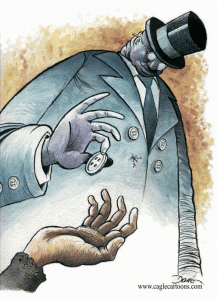
I changed during this trip. Though sick and fatigued I re-learned (a work in progress) how to read the metaphors around me and how to interpret the lyrics and plot lines of the past. And now I own again some small ability to take a meta-view of the symbols around me. I don’t think the world has changed a great deal since I went to my first concert (Fleetwood Mac and Gary Burton and the Animals, Kaiser) in Southern Colorado, saw my first movie, heard of JFK’s death on the radio or watched a man land on the moon. There will always be, in varying portions, those who watch, those who pray, those who act, those who give and those who profit from adversity, turmoil or weakness. The songs are about them all, as are the pictures in magazines, and now the Tweet, blog post or Facebook entry. I am hopeful once again because I own the responsibility to act in accordance with my heart as mandated by my conscience and I see others actively doing the same so I do not feel alone. It is time once more to defy Pavlovians by directing myself via free will to associate the contemporary idioms and events of today with the sights, sounds and cadence of the good that I hope to sense again when I’m brought to reflection on them in the future…
Uncategorized
